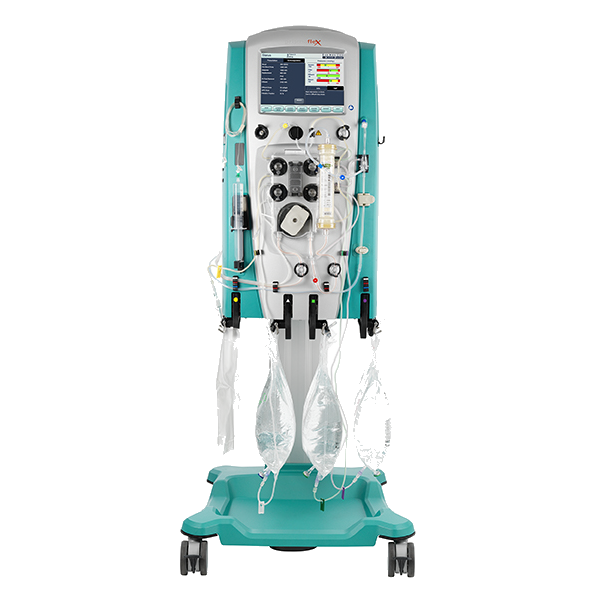Critical Care
When every moment is critical, our technology is supporting healthcare specialists immersed in patient survival and recovery in the intensive care unit (ICU).
When severe and life-threatening illnesses and injuries occur, a highly specialized team of healthcare professionals and advanced medical resources are required to support normal body function. During this time, all healthcare is critical to help the body recover.
We are a trusted partner of healthcare providers in the ICU, where you will find not only our IV medications and infusion systems, but also our unique continuous renal replacement therapy (CRRT) technology when acute kidney injury (AKI) occurs. This dialysis therapy enables slow and continuous fluid removal and may reverse AKI and support overall recovery. Our proprietary technology also has the potential to support therapy of additional organs beyond the kidney.

Advancing Care in the ICU
AKI happens when the kidneys suddenly stop working, usually due to a serious infection or trauma. The damage to the kidneys is not always permanent if treated right away, and other serious health problems don’t exist. The latest advancements in treating AKI can help ensure that you or your loved one receive the right therapy at the right time. As a pioneer in organ support therapies, we designed the PRISMAFLEX System to help healthcare teams provide effective continuous CRRT to patients with AKI and other conditions.
Advancing Critical Care
Access
Our continuous renal replacement technology is available in more than 80 countries, and in 29 languages.
Quality
Our CRRT technology can deliver the highest standard of care when AKI occurs in the ICU; more than 7 million treatments have been provided globally.
Safety
Our CRRT technology is a highly accurate system that is built with safety features to help healthcare providers closely monitor and manage patient care.
35 million
ICU admissions are recorded each year1
20%
of hospitalized patients develop AKI2